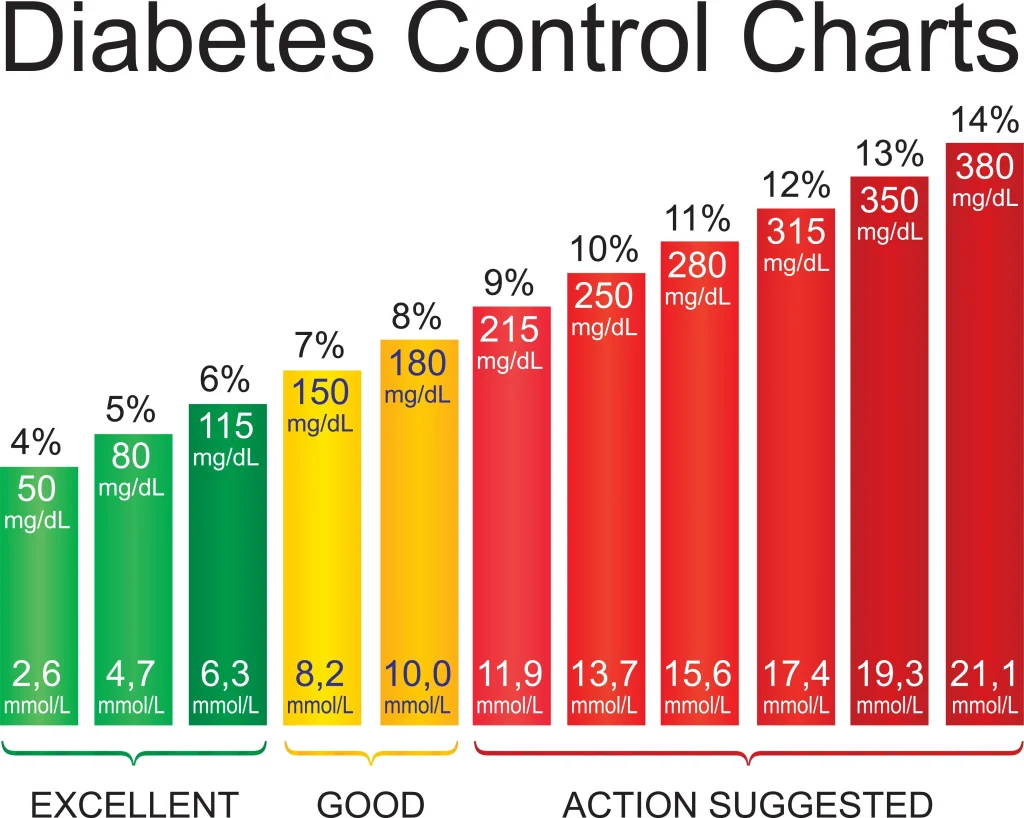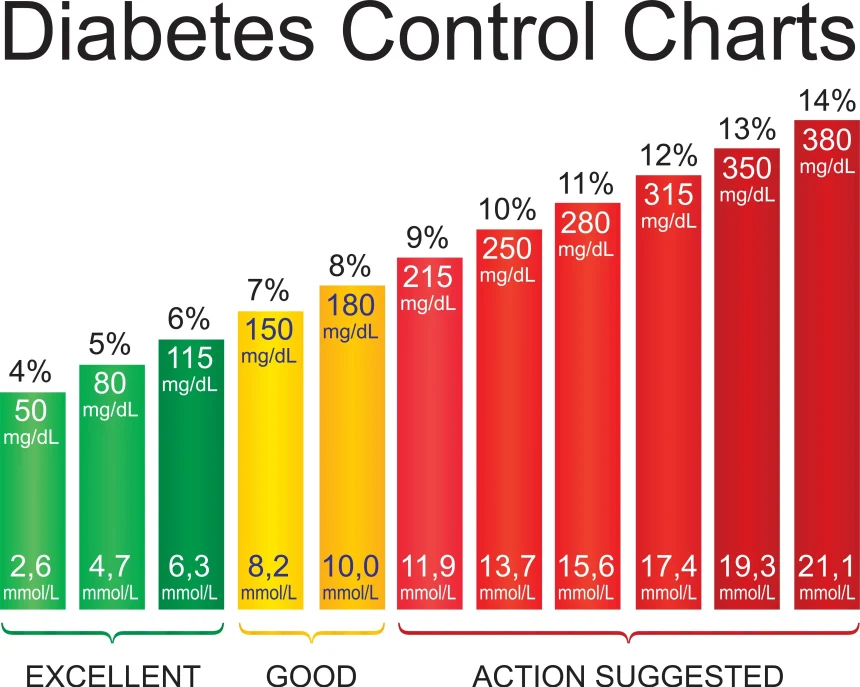Keeping diabetes levels steady is essential for general health and wellbeing
Whether you have diabetes or are simply looking to optimize your health, understanding how to manage your diabetes effectively is essential. In this blog, we’ll explore practical tips for achieving balanced diabetes levels, including strategies for preventing both low and high diabetes episodes. Let’s dive in!

Understanding Blood Sugar:
It is also known as blood glucose, refers to the concentration of glucose (sugar) present in the bloodstream. Glucose serves as the primary source of energy for the body’s cells and is obtained from the foods we eat. However, maintaining diabetes levels within a healthy range is essential for the proper functioning of the body.
Normal blood glucose levels:
Normal levels vary depending on factors such as fasting status and individual health conditions. In general, normal levels are:
Fasting diabetes:
70-99 mg/dL (milligrams per deciliter) or 3.9-5.5 mmol/L (millimoles per litre).
Postprandial (after-meal) blood glucose: less than 140 mg/dL (7.8 mmol/L) two hours after eating.
Low blood glucose symptoms (hypoglycemia):
Low sugar levels, or hypoglycemia, occur when blood glucose levels drop below the normal range. Symptoms of hypoglycemia may include:
Shakiness or trembling
Sweating
Rapid heartbeat
Hunger
Irritability or mood changes
Confusion
Weakness or fatigue
Headache
Dizziness or lightheadedness
High diabetes symptoms (hyperglycemia):
High blood glucose, or hyperglycemia, occurs when blood glucose levels rise above the normal range. Symptoms of hyperglycemia may include:
Increased thirst
Frequent urination
Fatigue
Blurred vision
Dry mouth
Headache
Difficulty concentrating
Slow wound healing
Unexplained weight loss
Tips for Managing Sugar levels:
Now that we understand the importance of balanced diabetes levels and recognize the symptoms of low and high diabetes, let’s explore practical tips for managing blood sugar effectively:
Eat a balanced diet:
Make a point of consuming full, nutrient-dense foods like whole grains, fruits, veggies, lean meats, and healthy fats.
Limit refined carbohydrates and sugary foods, which can cause rapid spikes in diabetes levels.
Monitor portion sizes and aim for balanced meals that include a combination of carbohydrates, protein, and healthy fats to promote steady sugar levels.
Monitor blood sugar levels regularly:
If you have diabetes or are at risk for blood sugar imbalances, monitor your blood sugar levels regularly using a glucose meter.
Keep track of your diabetes readings and identify patterns to better understand how your diet, exercise, and lifestyle habits affect your blood glucose levels.
Stay Active:
Engage in regular physical activity, such as walking, jogging, swimming, or cycling, to help regulate blood sugar levels and improve insulin sensitivity.
Aim for two or more days of muscle-strengthening activities per week in addition to at least 150 minutes of moderate-intensity aerobic exercise.
Stay Hydrated:
Drink plenty of water throughout the day to stay hydrated and support healthy blood sugar levels.
Instead of sugar-filled drinks, try water, herbal tea, or water that has been infused with fresh fruit and herbs.
Manage Stress:
Practice stress-reduction techniques such as deep breathing, meditation, yoga, or tai chi to help lower stress hormones and promote relaxation.
Prioritize self-care activities that bring you joy and help you unwind, such as spending time outdoors, listening to music, or practicing hobbies.
Get adequate sleep:
Aim for 7-9 hours of quality sleep per night to support overall health and well-being, including healthy blood sugar regulation. To encourage restful sleep, set up a comfortable sleeping environment, a consistent sleep regimen, and a calming nighttime ritual.
Conclusion:
Managing diabetes levels is essential for overall health and well-being, whether you have diabetes or are simply looking to optimize your health. By incorporating these practical tips into your lifestyle, you can achieve balanced blood glucose levels and promote long-term health and vitality. Remember to monitor your sugar levels regularly, listen to your body’s signals, and make adjustments as needed to maintain stable diabetes levels and thrive in all aspects of life.


